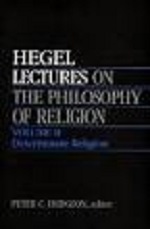
Arquivo para June 10th, 2015
The state as religion and networks
The phrase is Francis Fukuyama, famous for the “end of history”, but want to understand its genesis and its development today.
and its development today.
It was from elaborations from Kant to Locke that the modern state ideas were consolidated, but in Hegel not only idealism reaches its apex but also the ethics of the State, the positivist science and logic as the basis for a belief “secular” in the state.
The Hegelian philosophy is based on the philosophy of identity, expressing it in religion, history and finally in the right world with his concept of the state: “In addition, for live philosophy essentially the universality of the element, which itself includes particular, it raises it, more than in other sciences, the appearance of which in the end and the last results expressed the same thing, and even his consummate essence “(Hegel, 2001).
As art Hegel in his Aesthetics courses, related philosophy with the representation of truth wrote: “For only philosophy as a whole is the knowledge of the universe as an organic necessity in itself, which develops from its own concept and in his own need to relate herself as a whole returning to you as a world of truth “(Bousaguet & Bryant, 1889).
Structure in history as the state Hegel says that the first universal form was despotism, then democracy, aristocracy, and monarchy Third, it shows that it is the State’s idea comes first materialized through the spirit becoming aware themselves in the story, so the state would be the very embodiment of history, Marx part there in his proletarian state.
Let’s look at the text: “As a result, the first form of government we had in world history was the despotism; then came democracy and aristocracy, and, thirdly, the monarchy “(ibid). Hegel shows the realization of the state as a realm of freedom for political-administrative determination as monarchy, universal instance in which the idea is materialized by through the mind becoming aware of itself in history. “(Hegel, 2001).
The state religion believes that he is all powerful, it is fair, there is crisis, networks are there to deny and demystify all this, it is not printed, but the networks of people who are there.
References:
Hegel, G. L. Phenomenology of Spirit. ew York: Fordham Univer- sity Press, 1976. NY: Fordham University Press, 1976., 1976
______. Philosophy of History. Ontario, Ca: Batoche Books, 2001.
Bonsaguet, B. & Bryant, W.M. Hegel’s Lectures on Aesthetics, Selections from Hegel’s Lectures on Aesthetics, “The Journal of Speculative Philosophy”, 1886.

